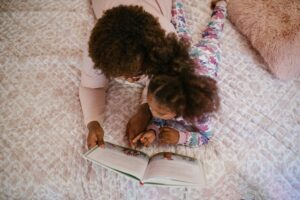“I am still committed to militant, powerful, massive, non-violence as the most potent weapon in grappling with the problem from a direct action point of view… But it is not enough for me to stand before you tonight and condemn riots. It would be morally irresponsible for me to do that without, at the same time, condemning the contingent, intolerable conditions that exist in our society. These conditions are the things that cause individuals to feel that they have no other alternative than to engage in violent rebellions to get attention. And I must say tonight that a riot is the language of the unheard.”
-Dr. Martin Luther King, Jr., excerpted from his speech “The Other America”, March 14, 1968
Whenever violence erupts in a community, there are many questions that must be asked, questions that often have no easy answers. How did a report of shoplifting escalate to the violent end of Michael Brown’s young life, and then to businesses in Ferguson going up in flames? How many opportunities were present to defuse and deescalate this situation? What words could have been said at a critical moment by Michael Brown or Officer Darren Wilson? What actions could have been taken by community leaders, by parents, or by any of us to interrupt the ugly chain of events that followed Brown’s death? The bottom line is, the events that followed didn’t have to happen.
The exact details of the events that led up to the shooting of Michael Brown may never be known. The question that needs to be asked is how do we prevent future outbreaks of violence? What is needed is self-awareness and practical skills to handle each new conflict without harming others. Nonprofits like The Conflict Center in Denver are turning conflict into constructive conversation, violent thought into productive action, and the fear of speaking up into the courage to speak out. The Conflict Center stands ready to support individuals and communities wishing to take concrete action through building the skills to manage emotions and creating dialogue to solve the problems we face as a society. For the people of Ferguson, and the possible Fergusons to come, space is needed for protesters to master the art of nonviolent resistance, while treating others on all sides as needed and valued community members. This has been done before. This has worked before.
Managing conflict peacefully is not passive. It is hard work. Our popular culture does a great job of training us to respect the use of force, but collectively we fail to learn, practice and celebrate the creative processes of working through conflicts in constructive ways. The Conflict Center maintains ultimate respect for nonviolence and the dignity of human life and we will not give into violent behavior no matter how violated we feel and unfair the system is. We ask for your action, not just reaction. We ask that you risk courageous conversations and open dialogue, hold fast to the just, protest the unjust, be clear and consistent in your actions while understanding that conflict is inevitable — but violence is not. This is the challenge we face, lest history repeat itself.
Michael Hoops, Board President
The Conflict Center




